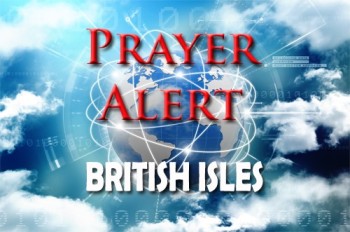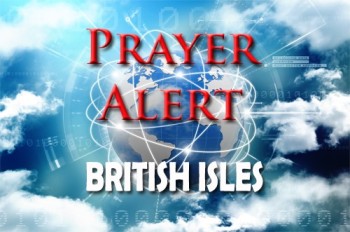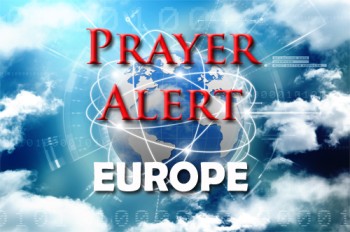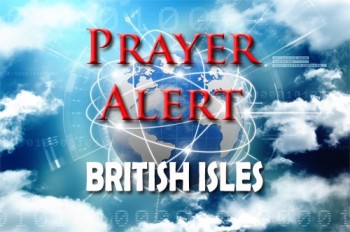Displaying items by tag: controversy
Zimbabwe: cabinet approves extending president’s term till 2030
Zimbabwe’s cabinet has approved constitutional changes that could extend president Emmerson Mnangagwa’s rule until 2030, sparking strong opposition concern. The proposals would lengthen presidential terms from five to seven years and allow parliament, rather than voters, to choose the president. Supporters say the measures would ensure political stability and continuity for development programmes, but critics argue the reforms undermine democratic processes and require a national referendum. Since coming to power in 2017, Mnangagwa has faced growing scrutiny from civil society groups who fear weakening constitutional protections. He has presided over a collapsing economy which has suffered hyperinflation and unemployment, undermined by alleged corruption and cronyism. The opposition, fragmented and weakened after years of repression, has failed so far to mount significant resistance to the proposal.
Australia: under-16s prepare for social media ban
The impending ban on social media access for under-16s in Australia has sparked confusion, concern, and debate among students, parents, experts, and global observers. From 10 December, platforms such as Instagram, TikTok, Snapchat, YouTube, and others must demonstrate effective age verification or face major fines. Schools are scrambling to prepare teens for losing access to their accounts, photos, and online communities. Tech companies are rolling out facial age-estimation tools and other verification methods, though questions remain about accuracy and accessibility for older teens. Many young content creators fear losing hard-won followings, while others, like students at phone-free leadership programmes, describe unexpected freedom and richer real-life connections. Advocates warn that some teens rely on social media for support networks and could be pushed toward more dangerous spaces. The policy, inspired partly by concerns over youth mental health, has drawn both strong political backing and legal challenges claiming that it restricts young people’s rights. Other nations are watching closely as similar proposals emerge worldwide.
Israel: looming crisis over conscription of ultra-Orthodox Jews
The long-standing exemption of ultra-Orthodox (Haredi) men from military service has potentially become a huge crisis for Benjamin Netanyahu. With the Gaza war placing immense strain on reservists, public opinion has shifted decisively toward ending the exemption, which was first granted in 1948. Although the high court ruled it illegal twenty years ago, political gridlock has kept it in place, so that only 1,200 of 24,000 drafted Haredi men reported for duty last year. Haredis have more than doubled their share of Israel's population over the past seven decades, and now account for 14%. What began as an exemption for several hundred religious students has now become a cohort of some 60,000 men left out of the draft. Street protests, clashes with police, and rapid-response networks reflect growing Haredi communal resistance. Supporters of conscription - religious and secular alike - argue that fairness and national survival demand shared burden. Yet ultra-Orthodox leaders insist that studying the Torah protects Israel spiritually and must remain untouched. Netanyahu’s fragile coalition depends on Haredi parties, making meaningful reform politically perilous. The Haredis are now locked in a debate over what it means to be Jewish and Israeli, and whether that means fighting for Israel or fighting for their way of life against the modern demands of war.
Trump says he has 'obligation' to sue BBC because 'it defrauded the public'
Donald Trump has intensified his criticism of the BBC, threatening a billion-dollar lawsuit over what he claims was a dishonest editing of a speech he delivered before the 6 January 2021 Capitol riot. The threat follows the resignation of BBC director-general Tim Davie, who stepped down amid the controversy. Trump told Fox News he felt an 'obligation' to sue, accusing the broadcaster of 'defrauding the public' and turning what he described as a calming speech into something radical. His legal team has demanded a full retraction of what they consider defamatory statements, warning that failure to comply will trigger legal action. Sir Ed Davey has urged Keir Starmer to ask Trump to drop the lawsuit. Starmer defended the BBC as a vital and independent institution, across the world, while acknowledging the need for accuracy and accountability. Culture secretary Lisa Nandy warned MPs against undermining the broadcaster, emphasising its national importance as charter review approaches. The situation has reignited debates around impartiality, political pressure, and the future governance of the BBC.
Controversial proposed oil field publishes climate impact figures
The full environmental impact of the proposed Rosebank oil field, the UK’s largest undeveloped fossil fuel site some eighty miles north-west of Shetland, has now been revealed - and it is vast. The developers, Equinor and Ithaca Energy, have admitted that burning Rosebank’s oil and gas could release nearly 250 million tonnes of carbon dioxide over 25 years, equivalent to two-thirds of the UK’s current annual emissions. The figure, which dwarfs earlier estimates, follows a court ruling requiring a full assessment of the climate impact not just of extraction, but of using the fuels themselves. Environmental groups, including Greenpeace and Uplift, call the figures a stark warning that Rosebank is incompatible with Britain’s 2050 net-zero goal. The Government’s final decision, due after public consultation closes in November, will test its climate credibility. While the developers claim the emissions are ‘not significant’, critics insist that approving Rosebank would lock the UK into decades of pollution and contradict its clean energy ambitions.
Greece: parliament set to approve thirteen-hour workday
Greece is poised to introduce one of Europe’s most controversial labour reforms - a thirteen-hour workday for private-sector employees. The new legislation, expected to pass parliament despite widespread protests, would allow workers in industries such as manufacturing, retail, and hospitality to take on a sixth workday and extended hours, with higher pay for overtime. The government argues that this flexibility will help address labour shortages and support economic growth amid an aging population. However, unions and opposition leaders have condemned the move as a step backward, heightening job insecurity, disrupting work-life balance and legalising overexploitation. One in five Greeks works more than 45 hours a week, the highest rate in the EU, and outdone by only four other countries in the world; low salaries force many to work two jobs to cover the soaring cost of living, in particular high housing costs. Officials insist the extra hours will be voluntary and regulated, but many groups are deeply sceptical.
USA: Trump says ‘we’re going in’, sends National Guard to Chicago
Donald Trump has announced plans to deploy National Guard troops to Chicago, describing the city as a ‘hellhole’ plagued by violent crime. He hinted Baltimore could be next, insisting his actions are not politically motivated despite targeting Democratic-led cities. Illinois governor JB Pritzker and Chicago’s mayor strongly opposed the move; Pritzker called it an ‘invasion’, stating that murders have fallen nearly 50 percent in four years. There have already been protests in Chicago expressing opposition, as residents fear further unrest. The announcement follows Trump’s controversial use of troops in Washington and Los Angeles, where a federal judge has recently ruled he overstepped legal boundaries. The judge said that Trump appears intent on ‘creating a national police force with the President as its chief’. He has barred National Guard troops or marines from performing police functions: however, this will come into effect only on 12 September, potentially leaving an opening for the conservative-dominated supreme court to rule on the case.
Farage says Church leaders 'out of touch' on immigration issue
Reform UK leader Nigel Farage has defended his hardline immigration plan, ‘Operation Restoring Justice’, which would see all illegal Channel crossings - including those by women and children - met with deportation if his party won power. He argued that the proposals align with Britain’s Judeo-Christian heritage, despite opposition from Church leaders, whom he accused of being 'out of touch' with ordinary believers. Farage suggested that criticism from bishops and 'The Establishment' was inevitable, but insisted meaningful change often comes through struggle. His plan includes withdrawing from the European Convention on Human Rights, scrapping the Human Rights Act, and suspending treaties used by courts to block deportations. Labour dismissed the proposals as an 'unworkable gimmick,' while Conservative leader Kemi Badenoch accused Reform of copying Tory policies. The announcement follows rising protests near asylum seeker accommodation and record asylum claims in 2024. Reform UK claims it could deport up to 600,000 people in its first term. See
Far-right link taints ‘patriotic’ grassroots flag movement
A grassroots campaign called 'Operation Raise the Colours' has seen activists in over a dozen English towns hoisting hundreds of Union and St George’s Cross flags on lampposts. Organisers claim the movement aims to restore national pride and community spirit, with some £13,000 raised to buy flags. However, its credibility has been damaged by links to far-right groups. Britain First donated 250 flags, and organiser Andy Saxon has publicly supported its leader Paul Golding and activist Tommy Robinson. Britain First, with roots in the BNP, is notorious for promoting 'remigration' and anti-Muslim rhetoric; its leader has criminal convictions for religiously aggravated harassment. Critics warn that what is presented as patriotism risks being hijacked by extremist groups. Councils in Birmingham and Tower Hamlets have removed flags, citing safety and political concerns, while twelve Reform UK-controlled councils have pledged not to take them down, calling removals 'shameful’. The controversy highlights how national symbols can be co-opted into culture wars, deepening division rather than fostering unity.
Israel: plans to build 3,000 houses in contested West Bank settlement area
Far-right finance minister Bezalel Smotrich has announced plans to approve over 3,000 housing units in the contested E1 settlement area between Jerusalem and Maale Adumim in the occupied West Bank. Long frozen due to international opposition, the project would physically separate East Jerusalem from the rest of the West Bank, undermining prospects for a contiguous Palestinian state. Smotrich declared the plan would ‘bury the idea’ of such a state, describing it as an assertion of Israeli sovereignty. Settlement expansion is considered illegal under international law, though Israel disputes this. The announcement comes amid growing international momentum toward recognising Palestinian statehood, which Israel opposes. Critics warn that the move deepens annexation, fuels conflict, and blocks the path to peace. Smotrich, together with national security minister Itamar Ben-Gvir, was sanctioned by the UK in June over ‘repeated incitements of violence against Palestinian communities’ in the occupied West Bank: see









